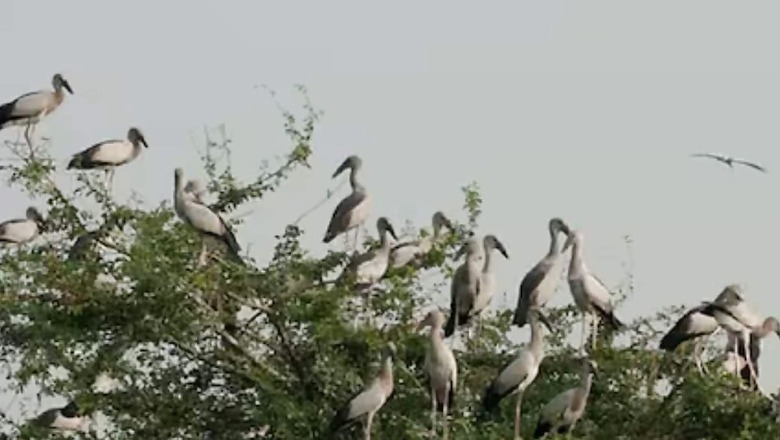
views
The Lotus Lake Thirunavaya, also called Thirunavaya Migratory Bird Sanctuary is a lake bird sanctuary and wetland in Tirunavaya, Malappuram district, Kerala, India. There are many lotus lakes to see here, including South Pallar Lotus Lake, Valiyaparapoor Lotus Lake and Edakulam Lotus Lake. The sanctuary is visited by many migratory birds.
It is a distinctive monsoon phenomenon for the birds nesting in the tree branches of South Pallar Lake. The flocks that have flown across the sea to these treetops for many years are now more than just migratory birds.
Among them are the open-billed stork, as well as Chinnamundi, Cherumundi, Perumundi, Kalimundi, Chayamundi, Nun, Chulan Eranda, Tamarakozhi, Neelakozhi, Cherakozhi, Kulakozhi, Neerkazhi, Thithiripakshi, Patirakoji, Kulakokk, Neerkkada, Scythe, Field Grouse, Bluehen, and Hanging Sparrow. These birds arrive in such numbers that they are countless each year.
One tree is filled with open-billed stork nests. You can see mother birds and their mates waiting for the eggs to hatch, and in some nests, the chirping of baby birds can be heard. This is also the scene around the nests of other birds.
The birds waiting to lay their eggs are not alone; locals are guarding them. A group of people, led by teacher Salman Karimbanakkal, ensures the protection of these birds. Bird watcher Srilata Mahesh is also part of this effort. Due to their fight against poaching, migratory birds have started settling here. Understanding the importance of these birds, Salman distributes awareness notices endorsed by the forest department door-to-door and regularly checks the nests’ protection.
Migratory birds that have visited the sanctuary include the Asian Stork and Great Egret. Rare migratory birds are often sighted during the season from September to February. Among the numerous species found here are the Open Bill Stork (Cherakokkan), Chinnamundi, Cherumundi, Perumundi, Kalimundi, Chayamundi, Nun’s Beak, Chulan Eranda, and many more.




















Comments
0 comment